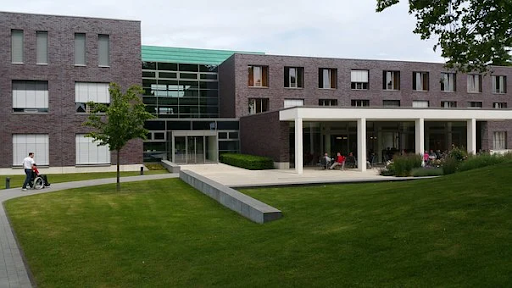One of the most common myths about addiction is that willpower alone is perfectly enough to recover from alcohol or drug abuse. Unfortunately, things are much more complex and complicated, and in reality, addicts who do not have professional help are destined to fail.
However, in the majority of cases, not addicts are those who can recognize when they need help, their family does. The earlier they seek help for their loved ones, the better the chances for a full recovery. Regardless of whether they opt for an inpatient or outpatient rehab program, there is a range of crucial factors that affect the entire process and either contribute or hinder the final goal – a return to a normal and happy life free from addictions.
A healthy environment during the treatment is one of such important elements, and here is why.
Inpatient vs Outpatient
If put simply, the main difference between inpatient and outpatient treatments is that the latter allows those who are in trouble to stay at their homes or special sober living facilities, meaning they can still keep close ties with their family members and friends, as well as be engaged in the majority of everyday activities. In contrast to the outpatient variant, inpatient addiction treatment always implies checking into the medical facility, bringing alone isolation from a familiar setting including family and friends.
Why it is quite natural to assume that the outpatient option is a better choice because, in hard times, we all need support from our loved ones, the reality is different. The practice has clearly shown that the atmosphere of a specialized treatment center is far more supportive and conducive because it eliminates dangerous triggers and associations, preventing clients from losing their right path. Drug and alcohol addicts are an extremely vulnerable group in terms of getting back to old habits, hence the outpatient scheme often not the best choice for patients looking for full recovery from drug or alcohol abuse, as well as abuse of other substances.
Outpatient Programs
The majority of outpatient programs are designed to address the specific needs of every addicted person and cover a wide spectrum of activities and treatments, from discovering underlying issues to providing necessary psychological support. Individual and group therapy is also part of the plot, as well as family sessions if family members are willing to contribute to the recovery.
The plan of the treatment may vary greatly depending on the severity of a problem, a type of drug, and duration of abuse, but the first and foremost condition for entering any of them is the completion of a drug detox program. Let’s take a closer look at some of the most efficient outpatient variants.
- Intensive outpatient – clients live at home, taking part in both individual and group sessions several times a week, which takes up to four hours daily on average.
- Partial hospitalization – this type of addiction treatment is the most popular choice of the rich and famous. Widely known as “day rehab”, such programs are created to provide the effectiveness of an inpatient counterpart in the course of one day, letting clients return home for dinner. Usually, it calls for at least six hours five days a week.
- Therapy and counseling – these programs are intended to provide support for those clients who need to maintain sobriety, so they often continue for many months following the initial treatment. Depending on the individual needs of a person, it could be a range of activities with support groups and experienced therapists.
Inpatient Programs
If your loved one has serious problems with alcohol or drugs and suffers from substance abuse, all chances are outpatient treatment won’t yield desirable results. Such people are too dependent on their fake friends and bad habits, and they can’t handle even the slightest cravings on their own. The only place where they can be protected from the negative impact is a healthy and secure environment of inpatient drug rehab, where clients live 24/7 taking advantage of full medical care and a range of specially developed activities. The length of such programs can vary from four weeks to three months while many centers offer a broad variety of options to address the specific needs of men and women.
Addiction knows no borders or boundaries, it affects people of all races, social statuses, levels of income. If your family member or your loved one is in trouble, do not count on his or her willpower, seek the help of professionals immediately. When choosing a treatment, do not underestimate the importance of a healthy environment.




